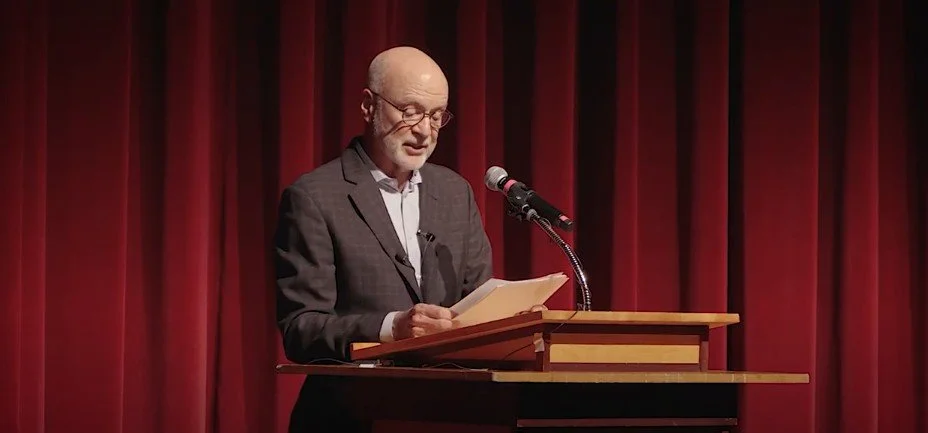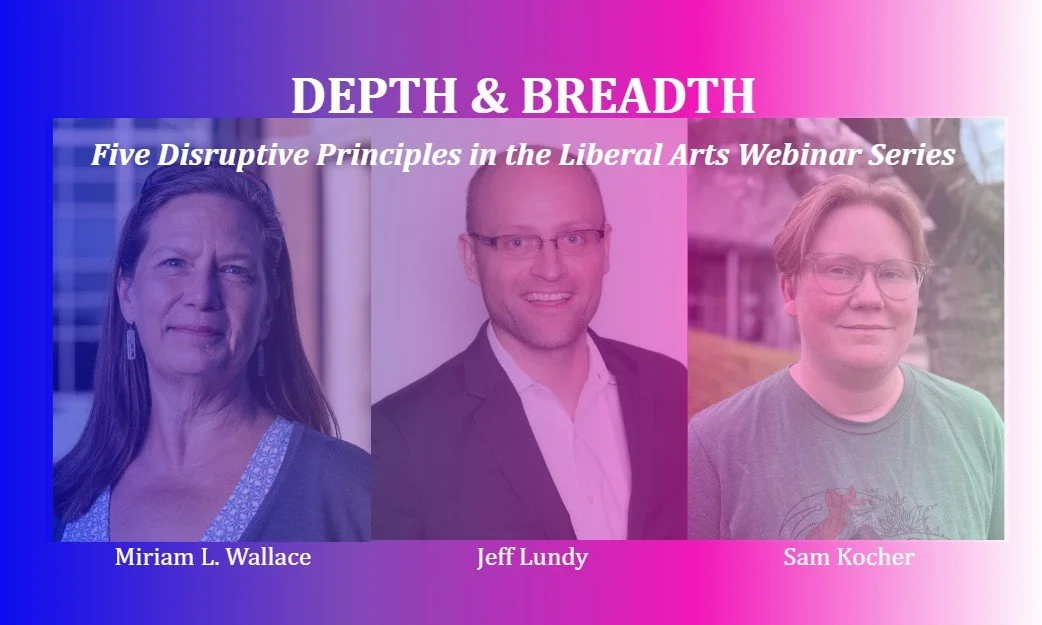
Five Disruptive Principles in the Liberal Arts
About the Project:
The Five Disruptive Principles in the Liberal Arts project was created to spotlight core practices that define—and defend—a meaningful liberal arts education. At a time when academic freedom, curricular integrity, and student self-determination are all under increasing pressure, this project asks: What principles are worth protecting, sustaining, and expanding within higher education?
AltLiberalArts commissioned a series of essays by leading scholars in the field to reflect on educational practices that sustained one of the country’s boldest public colleges, New College of Florida, from 1970 to 2020. These practices are active responses to the forces eroding educational freedom in the U.S. and around the world.
The result is a five-part video and webinar series designed to bring these ideas into public conversation, with participation from faculty, students, editors, program directors, authors, and higher education thought leaders.
The Five Disruptive Principles
These five principles are not just educational strategies; they represent a philosophy of learning grounded in freedom, inquiry, and responsibility. Click below to learn more about each Principle!
-
Education is most effective when it’s driven by student curiosity and responsibility. Students thrive when they have ownership over their learning path—when they help shape the questions, structures, and goals of their education.
Watch the Webinar
Watch the Mini-Class
Read the Essay
-
Learning is not a one-way transmission of content. It thrives in shared relationships—between faculty and students, among peers, and in partnership with communities beyond the classroom.
Watch the Webinar
Watch the Mini-Class
Read the Essay
-
Mastery is about more than completion. It involves intention, repetition, mentoring, and a willingness to let students wrestle with hard ideas in pursuit of transformation and growth.
Watch the Webinar
Watch the Mini-Class
Read the Essay
-
Liberal arts education should offer expansive interdisciplinary exploration alongside deep disciplinary study. When structured thoughtfully, these two goals enrich one another rather than compete.
Watch the Webinar
Watch the Mini-Class
Read the Essay
-
Grades alone do not capture the substance of student learning. Feedback, dialogue, reflection, and formative evaluation help students progress with intention—not just meet standards, but exceed them.
Watch the Webinar
Watch the Mini-Class
Read the Essay
Matt Lepinski, Mary Ruiz, Jono Miller, Stephen Miles.
Webinar Series
Each session includes a brief video presentation on one of the five principles, followed by a live panel discussion. All events are free and open to the public. Click below to watch or visit our YouTube channel for the Five Disruptive Principles Playlist!
STUDENT AGENCY & RESPONSIBILITY
What happens when students take ownership of their education?
MUTUAL ENGAGEMENT
What changes when faculty, students, and communities approach learning as co-creators?
MASTERY
What does it mean to pursue depth, discipline, and long-term growth in learning?
DEPTH & BREADTH
Can exploration coexist with academic rigor? How must the structure of learning adapt?
ASSESSMENT OF EXCELLENCE
How can we move beyond grading to more meaningful, growth-oriented feedback models?
Essay Authors and Contributors
Student Agency & Responsibility
Dr. Dan Chambliss is Professor Emeritus of sociology at Hamilton College. He earned his BA from New College of Florida and Master's and Ph.D. degrees from Yale University. He is coauthor with Christopher Takacs (a former student) of How College Works.
Mutual Engagement
Dr. Eric Schikler is the Jeffrey & Ashley McDermott Professor of Political Science and co-Director of the Institute of Governmental Studies at the University of California, Berkeley. Schickler was elected to the American Academy of Arts & Sciences in 2017. He received his B.A. from New College of Florida and his Ph.D. from Yale University.
Mastery
Dr. Stephen Miles is Professor Emeritus of Music at New College of Florida, where he served as Provost and Vice-President for Academic Affairs from 2011 to 2017. He is the Founding Director of New Music New College, which for 24 years served as a laboratory for interdisciplinary research and performance of contemporary music.
Dr. E. Juliana Paré Blagoev is Assistant Professor at Johns Hopkins Department of Education. She received her BA from New College of Florida, Her MA from Tufts and her PhD from Harvard. As a founding member of the International Mind, Brain, and Education Society, she has worked to improve the bidirectional integration of knowledge from research and educational practice.
Depth & Breadth
Dr. Robert Benedetti is Professor Emeritus in political science from the University of the Pacific where he also served as dean of the college and director of the Jacoby Center for Public Service and Civic Leadership. He taught and served as the Dean and Warden of New College, Sarasota FL from 1970 - 1989. Dr. Benedetti graduated from Amherst College, attended Union Theological Seminary, and received his doctorate in political science from the University of Pennsylvania.
Assessment for Excellence
James Feeney is a graduate of Goddard College who served as special projects assistant for three New College administrators and established New College’s Off-Campus Study Office under the leadership of John Elmendorf.
Mary Ruiz is a retired senior healthcare executive, the founding President of the New College Alumni Association and the former Chair of the New College of Florida Board of Trustees. She is a graduate of New College in Urban Studies and holds an MBA from the University of South Florida.
Dr. Mirriam Wallace is Dean of the College of Liberal Arts and Social Sciences at the University of Illinois-Springfield, and Professor of English. She is a graduate of Swarthmore College (BA) and the University of California, Santa Cruz (MA/PhD) in Literature. She is the former head of the New College of Florida Humanities Division.
Media & Outreach
For media inquiries, speaker requests, or background information on the Five Disruptive Principles project, please contact us at info@altliberalarts.org
We invite educators, journalists, institutions, and advocacy partners to share these materials and join us in protecting the values that animate the liberal arts.
AltLiberalArts is an independent educational organization. It is not affiliated with New College of Florida. The views represented here do not reflect the positions of New College of Florida or its governing authorities.






